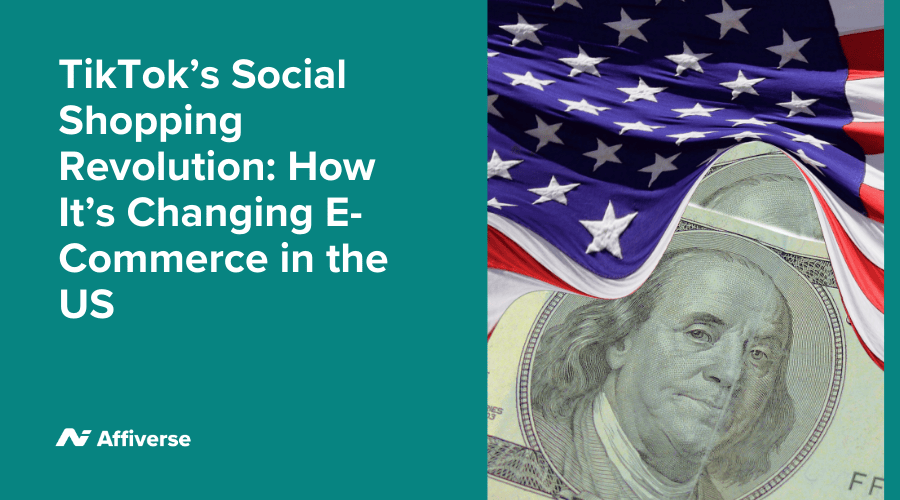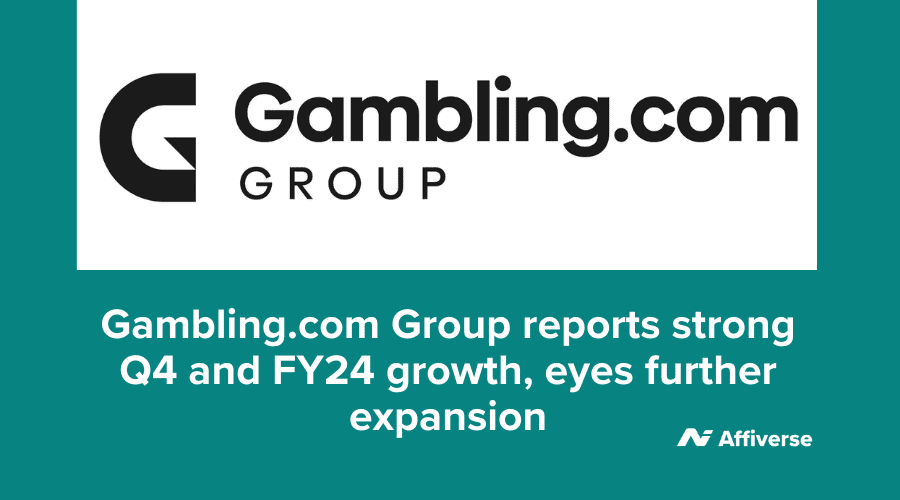TikTok is no longer just a platform for viral dances and trending challenges—it’s rapidly becoming a major force in e-commerce. Over the last year, the social media giant has ramped up its social shopping efforts in the US, and recent sales figures prove it’s working.
During the 2024 holiday shopping season, TikTok Shop hit a record $100 million in single-day sales on Black Friday, marking a major milestone for the platform’s push into online retail. This success signals a shift in how consumers discover and buy products, with TikTok’s blend of entertainment and commerce proving more effective than traditional digital ads.
As more brands, influencers, and affiliates embrace TikTok’s social shopping model, the impact on digital marketing and affiliate strategies is becoming impossible to ignore.
Why TikTok’s Shopping Model Is So Effective
Unlike traditional e-commerce, where customers actively search for products, TikTok Shop places products directly into their feeds in an engaging, organic way. This discovery-based shopping model removes friction from the buying process, making it easier for users to purchase items on impulse.
The biggest driver of TikTok’s shopping success is short-form video content. Instead of static product listings, users see real people demonstrating products, sharing their experiences, and reacting to purchases in real-time. This type of content feels more authentic and personal, which builds trust and encourages immediate sales.
Another key factor is live shopping. Influencers and brands can host live streams showcasing products, answer questions from viewers, and offer exclusive discounts. This interactive format mimics the experience of in-store shopping, creating urgency and excitement that leads to higher conversion rates.
For brands and marketers, TikTok Shop’s seamless integration of content and commerce means products can go viral instantly, generating massive sales with little upfront ad spend. A single video review from a popular influencer can sell out an entire product line overnight.
How Affiliates and Influencers Are Cashing In
Affiliate marketing on TikTok has taken off as creators realise they can monetise their content without relying on brand sponsorships. The TikTok Shop Affiliate Program allows influencers to earn commissions on products they promote, turning viral content into a steady revenue stream.
Unlike traditional affiliate marketing, where creators rely on link clicks and external purchases, TikTok’s model keeps everything within the platform, removing extra steps that could lead to lost conversions. Users see a product they like, click a button, and buy it—all without leaving the app.
This setup benefits brands, influencers, and affiliate marketers alike. Brands can tap into influencer-driven content to drive sales, while influencers get a cut of every purchase made through their videos. It’s a win-win model that has lower entry barriers than traditional affiliate programs, making it accessible to a wider range of creators.
Some of TikTok’s top-performing product categories include beauty, fashion, home gadgets, and tech accessories. Many of these products become overnight sensations, selling out in days as they spread across For You pages.
The TikTok algorithm also favours fresh content, which means even small creators can generate significant affiliate revenue if their videos perform well. This makes TikTok an ideal platform for affiliates who may struggle to get visibility on traditional platforms like YouTube or Instagram.
The Challenges of TikTok Shopping
While TikTok’s e-commerce success is undeniable, it’s not without its challenges.
One major concern is product quality and reliability. With so many third-party sellers using TikTok Shop, buyers sometimes receive low-quality or counterfeit products, leading to complaints and refund requests. TikTok has been working to tighten seller requirements and improve buyer protection, but some issues remain.
Another challenge is competition and saturation. As more brands and creators flood TikTok with promotional content, it’s becoming harder for products to stand out. Successful marketers need to balance entertainment with promotion, ensuring that their content remains engaging rather than feeling like a direct ad.
Brands also need to navigate changing algorithm dynamics. TikTok’s For You page heavily influences what users see, and the platform frequently tweaks its ranking factors. A strategy that works today may become less effective tomorrow, requiring constant adaptation.
What This Means for the Future of Digital Marketing
TikTok’s rapid expansion into social shopping is a clear sign of where digital marketing is headed. The combination of short-form video, influencer-driven commerce, and seamless checkout experiences is reshaping how brands sell online.
For marketers, ignoring TikTok is no longer an option. Whether through paid promotions, influencer partnerships, or direct participation in TikTok Shop, brands that fail to embrace this model risk being left behind.
Affiliate marketers also need to rethink their strategies. Traditional blogs and long-form reviews are still valuable, but platforms like TikTok offer faster, more engaging ways to drive sales. The affiliate industry is shifting towards real-time, interactive commerce, and those who adapt early will have a significant advantage.
As TikTok continues to refine its shopping experience, improve seller trust, and expand its affiliate program, its influence on e-commerce will only grow. Social shopping isn’t just a trend—it’s the future of online retail.



















